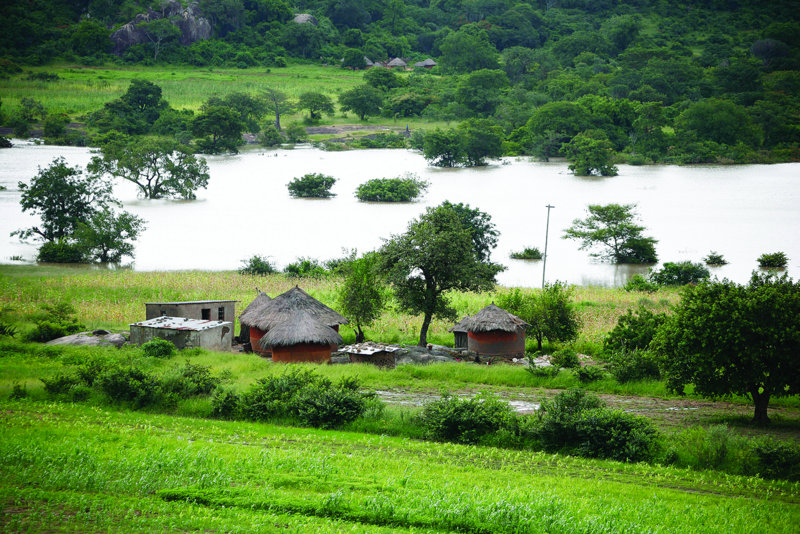
GLOBAL rights watchdog, Human Rights Watch, has urged the Zimbabwe Human Rights Commission (ZHRC) to carefully investigate circumstances leading to the flooding of the Tokwe-Mukosi basin in Masvingo last year amid fears that the floods were engineered by government to force the displacement of 20 000 villagers in the dam’s catchment area.
by PAIDAMOYO MUZULU
HRW Southern Africa senior researcher Dewa Mavhinga made the remarks yesterday at the launch of the organisation’s report on Zimbabwe, titled Homeless, Landless and Destitute, the Plight of Zimbabwe’s Tokwe-Mukosi Flood Victims.
“We recommend to the ZHRC to investigate the circumstances under which the flooding occurred amidst speculation that it (flooding) was done to move the people quickly without compensation,” Mavhinga said.
He added: “HRW believes that the flooding was preventable as no efforts were made to release the water through the tunnels on the dam wall. The tunnels were only opened in May 2014 when flooding began in February.”
He said the relocation of the people settled in the dam’s catchment area had been on government’s workplan for over two decades now, but was hampered by the villagers’ demand for compensation.
Mavhinga accused government of changing the goalposts on the size of agricultural plots each family was entitled to at their the new settlement.
“The families were initially moved to four-hectare plots which were later unilaterally changed to one-hectare plots and the majority of the families are yet to receive financial compensation one year on,” he said.
- Chamisa under fire over US$120K donation
- Mavhunga puts DeMbare into Chibuku quarterfinals
- Pension funds bet on Cabora Bassa oilfields
- Councils defy govt fire tender directive
Keep Reading
Some representatives of the displaced families at the launch of the report said they were unhappy with the compensation received and lack of information as to whether they could build permanent structures on their new plots.
A villager Kundiso Tevera said: “The new one-hectare plots are too small to accommodate large families and at the same time keep livestock which needs grazing land.”
Another villager Admire Mashenjere added: “The new resettlement area is like an urban setting where density is high and one cannot subdivide his or her land to children or siblings as happens in other communal areas.”
The resettled families are generally expected to engage in sugar cane production as the government is looking at setting up an ethanol plant in the area after the completion of the dam.
“All displaced families should take part in the sugarcane production despite the fact that the people should have freedom to choose what they want to produce,” Mavhinga said.
HRW also said that the Tokwe-Mukosi matter would remain a thorny issue as the villagers were dependent on the State for food, shelter and drinking water.











